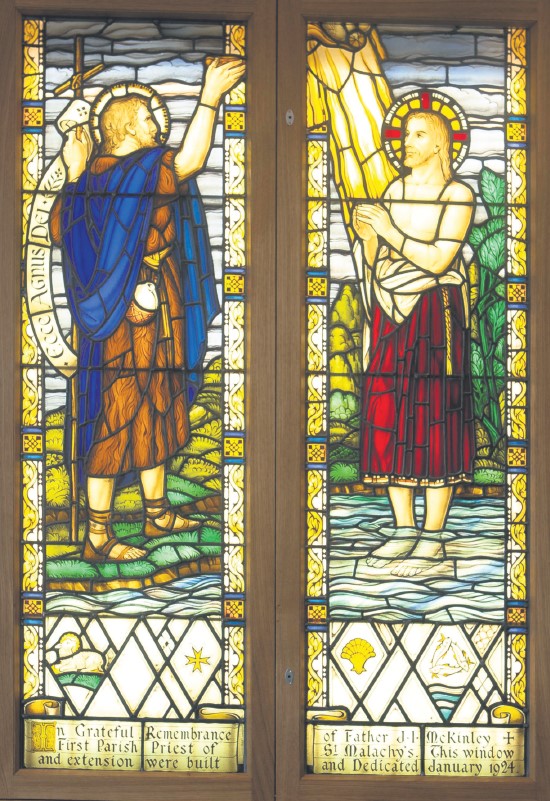Friday 1st November 2019
Christians must fight against post-modernism
Stefan Kaminski
Faith and reason: ‘the two wings on which the human spirit rises to the contemplation of the truth’

The well-known line reproduced above comes from Pope Saint John Paul II’s encyclical letter, Fides et Ratio. It presents a powerful, and no doubt provocative, challenge to today’s society. Many would scorn such a statement. Indeed, perhaps a surprising number of Catholics might also raise their eyebrows. Surely, the ingenuity and the progress of the human spirit are only thanks to our intellectual capacity?
The Enlightenment philosophers certainly thought that faith and doctrine no longer had a place in the rational, modern world order. As a result, faith became distanced from reason in the public forum and increasingly privatised.
The gradual effect of this public separation of faith and reason for the individual is a loss of the sense of the relationship between their own intellect and God. The spiritual life, then, all too easily becomes reduced to a matter of the emotions only. The danger of undernourishing our intellect in the matter of faith is that the reception of the sacraments become mere ritual and prayer takes on a certain tedious repetitiveness. In the meantime, the intellect is left to hold on to certain basic ideas it believes to be true, without ever developing these or integrating them more fully into the spiritual life.
Today, however, not only has the search for truth cast off any reference to faith, but truth itself is questioned: our deconstructed, post-modern age denies the validity of any universal truths.
“Post-modernism” does not merely reject faith and doctrine, it also rejects the existence of objective truth that is accessible to our reason. As a result, we live in an age where opinions and feelings are the only measure of the human spirit, where tolerance is the highest social virtue, and where morality is a purely subjective matter.

The resulting challenge facing the Catholic who wishes to live out the faith coherently in today’s world has multiplied. Today’s Catholic does not simply need to justify his faith: today’s Catholic must also justify his reason. It is no longer enough to say, “I believe in God”. It is no longer even enough to explain why one believes in God. It is now also necessary to articulate why any sort of belief can be at all considered true in the first place.
Recently, the Christian Heritage Centre hosted Michael Dopp, a well-known Canadian speaker on the New Evangelisation and Catholic apologetics. During the course of a talk, Michael commented that, “post-modernity is essentially insanity… [because] everything that matters is unknowable.”
He succinctly observed the contradiction inherent in postmodern thinking: it claims that there is no metaphysical truth, and yet this itself is a claim about metaphysical truth; it says that all truth is relative, and yet it makes judgements (a claim to absolute truth) about the truths proclaimed by others; it claims to be tolerant, and yet it is inherently intolerant of views motivated by a different way of thinking.
When we proclaim our faith in the Incarnation, we make an incredibly bold statement that stands in opposition to the core tenets of postmodern thinking. By stating that God the Son became man, that He assumed a real human nature while remaining fully God, we are not only claiming a metaphysical truth: we are also claiming that our intellect is capable of knowing metaphysical truth. The Christian holds that the Word – the Logos, the Reason –through whom and for whom Creation was made (cf. John 1:1-3), does not simply remain an inaccessible, spiritual reality.
The Christian proclaims that the Logos became man. In other words, truth – the highest and most significant Truth – joined itself to our human nature and embraced a human soul, with a human intellect and a human will.
What does this say about humanity? Simply, that humanity is capable of knowing, of loving and of receiving God. What do the Incarnation and the Paschal mysteries say to us about metaphysical truths? That there is one, overarching reality with which our physical reality is in strict relationship: we were made by God and for God, we fell from His grace, and we have been redeemed by Him. This truth about the human race is neither abstract nor purely metaphysical: these are events that occurred in the flesh, that are part of a history. They are events that gener-ated consequences and continue to be experientially verifiable.
To separate these Christian truths from our intellectual lives is, indeed, insanity. The 20th century apologist, Francis Sheed, notes at the beginning of his book Theology and Sanity: “If we see things in existence and do not in the same act see that they are held in existence by God, then equally we are living in a fantastic world, not the real world.”
Post-modernism, and indeed many of us on a day-to-day basis, are guilty of living in a fictitious world where we do not see everything in its real place, namely in an essential relationship to the living God.
This is not simply an exercise of faith by the heart and the will. This is an act of the intellect: it is an intrinsically different way of looking at the world to that proposed by both modernity and, even more radically, postmodernity. St John Henry New-man once said: “Dogma is the food of prayer”. This may sound foreign to our contemporary ears, but putting aside societal preconceptions, he makes a profoundly relevant point for us today. It is necessary for us, as it was for Newman, not only to make space for the “heart-to-heart” conversation with God, but also to seek the objective truth and reasoning for our beliefs, as handed on by the Church over the centuries.
Stefan Kaminski is the Director of The Christian Heritage Centre
